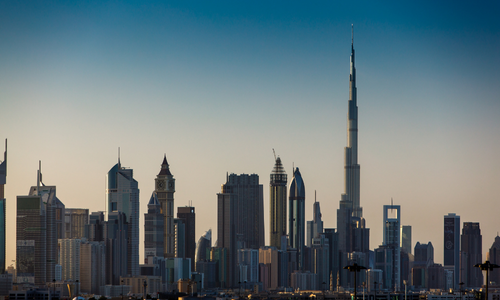By Sakani
Mainland company setup in Dubai: Step-by-step guide

Setting up a business in Dubai’s mainland gives you full access to the UAE market — whether you’re opening a retail store, launching a consultancy, or building a logistics network. But unlike free zones, mainland companies require different licensing, office requirements, and compliance with the Department of Economy and Tourism (DET).
In this guide, we explain exactly what a mainland license is, who needs one, how much it costs, and how to get started in 2025.
What is a mainland license in Dubai?
A mainland license allows you to operate a business anywhere within the UAE, without the geographical restrictions that apply to free zone companies. It's issued by the Dubai Department of Economy and Tourism (DET), formerly known as the Department of Economic Development (DED).
With a mainland license, you can:
Trade directly with local clients and companies
Bid for government contracts
Rent or own commercial space across Dubai
Set up branches across the UAE
Who needs a mainland license?
You need a mainland license if:
You plan to open a retail shop, salon, clinic, or restaurant
You want to serve clients across the UAE, not just inside a free zone
Your business involves government projects or tenders
You need to rent a shopfront or office in a non-free zone area (e.g., Sheikh Zayed Road, Business Bay, Deira)
Mainland licenses are also ideal for logistics, construction, manufacturing, and real estate brokerage.
Types of mainland licenses in 2025
The DET issues several categories of mainland licenses:
Commercial license: For trading, wholesale, and retail activities
Professional license: For service-based businesses, consultancies, and freelancers
Industrial license: For manufacturing, processing, or assembly-based operations
Tourism license: For travel agencies, tour operators, and hospitality-related services
You can also apply for multiple activities under one license, depending on compatibility.
Mainland vs free zone: What’s the difference?
Here’s a quick summary of how a mainland license compares:
Mainland license:
Can operate anywhere in the UAE
Can work with both public and private sectors
Requires office space (even a flexi-desk counts)
Regulated by the DET
Subject to UAE corporate tax laws
Free zone license:
Limited to operating within the zone or internationally
Cannot target UAE mainland clients without permits or distributors
Regulated by zone-specific authorities
May have tax benefits depending on the zone and activity
Office requirement varies
Benefits of a mainland license
Mainland licenses offer long-term flexibility for growth:
Operate across all of Dubai and the UAE
Work with local and international clients
Expand easily by opening branches
Hire unlimited staff (based on office size and visa quota)
Build a visible retail or commercial presence
No limitations on where your clients are based
This is especially important for industries that rely on foot traffic, visibility, or B2B sales in local markets.
Steps to get a mainland license in Dubai
Choose your business activity The DET has a long list of approved activities. Your chosen activity determines your license type.
Reserve a trade name Choose a name that complies with UAE naming rules and is not already registered.
Apply for initial approval This confirms you can proceed with the business setup.
Secure a tenancy contract Rent a physical office or co-working space and register the Ejari.
Submit required documents Includes passport copies, NOC (if needed), application forms, and tenancy contract.
Receive your trade license Once issued, you can apply for your establishment card and visas.
Cost of a Dubai mainland license (2025)
The cost of setting up a mainland company in Dubai depends on your business activity, visa quota, office size, and regulatory approvals. Here's a revised breakdown of estimated costs:
Entry-level setup (no visa or single flexi-desk): AED 20,000 – 25,000
Co-working space with 1–2 visa quota: AED 25,000 – 35,000
Dedicated office with multiple visas: AED 40,000 – 65,000+
These figures typically include trade license fees, Ejari registration, service agent charges (if applicable), and basic visa eligibility. Final costs may vary depending on your specific business activity or location.
Common mistakes to avoid
Choosing the wrong activity code Some activities require external approvals or have limitations. Always double-check with DET or a setup advisor.
Assuming a free zone license can work in mainland offices You cannot rent or operate from a mainland property with a free zone license unless you get a DET-approved permit or open a mainland branch.
Not budgeting for visa and immigration costs Mainland setups often require more documentation and additional fees than free zone options.
Sakani tip: Match your license to your location
If you plan to rent an office or commercial unit in areas like Sheikh Zayed Road, Downtown, or Al Barsha — make sure the property is tagged “Mainland license only” or “DET permitted.”
On Sakani, you can filter listings by license compatibility to avoid issues down the line.
Final thoughts
A mainland license in Dubai gives you full commercial flexibility, broad market access, and the ability to grow across the UAE. It’s the right choice if you need visibility, government access, or local market reach.
Need help finding a property that matches your license type? Sakani helps you search smarter — filtering spaces based on business activity, license zone, and visa requirements.